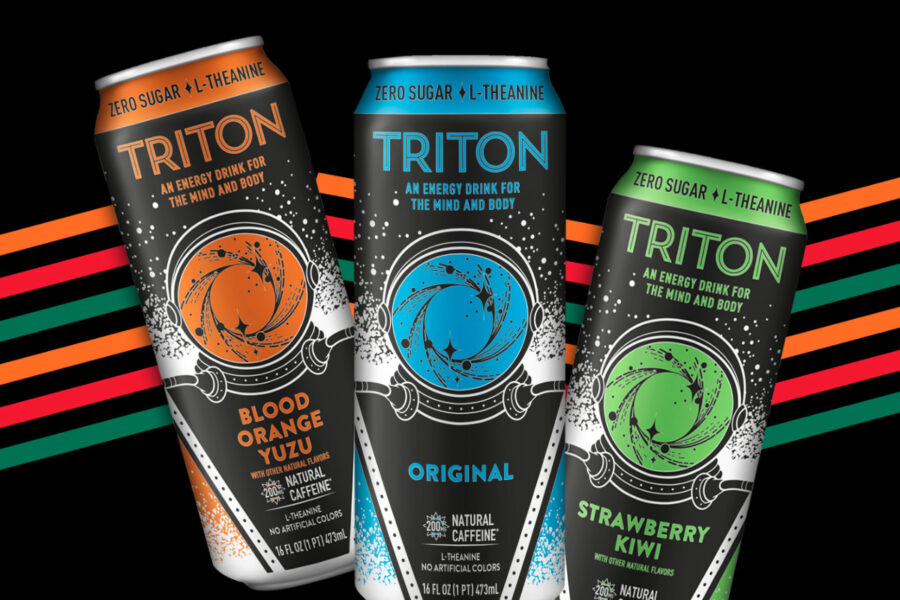
Innovation in caffeinated beverages
New drinks offer energy alongside immune support, better-for-you ingredients and a sports nutrition spin.

Triton
In October 2020, 7 Eleven, Inc. launched Triton, a new private brand, sugar-free energy drink.
Featuring caffeine and L-theanine sourced from green tea leaves, the beverage contains B vitamins, ginseng, taurine, guarana and amino acids. Triton comes in three varieties: blood orange yuzu, strawberry kiwi, and original, which features lemon, grapefruit and orange flavors.
“7-Eleven is one of the leading beverage sellers in the US, and our private brand drinks are a growing segment of that business,” said Jack Stout, senior vice president of merchandising and demand chain for 7-Eleven. “And that's not by accident. We are always looking for ways to improve quality and offer taste profiles that are new and trending at a great value.”


